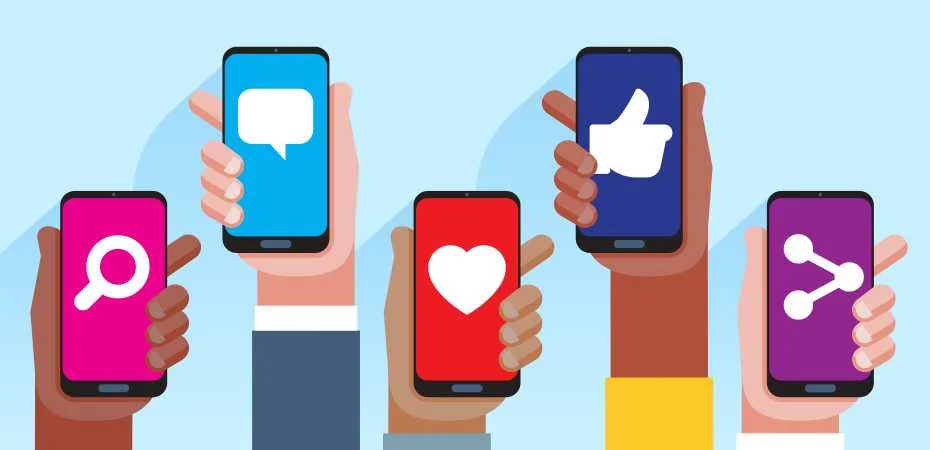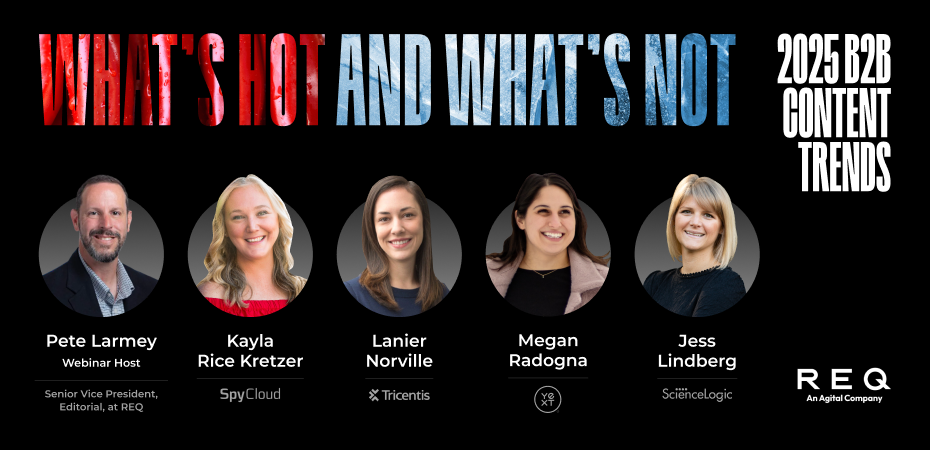April 15, 2025
| Article | by Isabel Begelman | Advertising,
Branding,
Content,
Social Media
Influencer Engagement: How to Effectively Engage with Influencers in the B2B Landscape
With the digital landscape's growing prominence, influencers can play a significant role in shaping opinions, amplifying brand messages, and fostering industry connections. Within the B2B space, influencers can be thought leaders, analysts, consultants, or industry peers who spark meaningful engagement and discussions across platforms.
Influencer engagement can have a myriad of benefits for our B2B clients. You can strengthen and reinforce thought leadership credibility by aligning your brand with influencers and creating long-term industry relationships. When used efficiently, influencer engagement is a strategic tool to widen your audience and reach, reinforcing your trustworthiness with your target market.
Creating Engaging Content with Influencers
When starting an influencer program, you must first understand your campaign needs and how influencers can help amplify your messages and tactics. After identifying your messaging and target audience, key considerations should include event promotion, thought leadership, joint content projects, or other focus areas that expand your reach and message. Doing so will help narrow the search for influencers, focusing on their industry relevance, audience demographics, and quality of content.
The impact and type of content influencers can bring will vary. They're primarily useful for:
Collaborative Content
Influencers may focus on long-form articles, blogs, Q&As, industry insights, or analyst perspectives. Collaborating with them should feel authentic by integrating your brand into their existing content style and approach in a way that aligns with their voice and audience. You can cater to each influencer’s platform through thought leadership while driving value to your core message and campaign. This can be Q&As, webinars, newsletters, podcasts, or analyst insights. Doing so will allow you better to integrate your voice throughout the influencer’s brand while engaging more directly and effectively with their audience.
Social Media
Social media will be the main engagement driver, as most influencers leverage LinkedIn and other social channels. Their content may include videos, photos, or newsletters, which can enhance your event or campaign visibility. Understanding how they engage—whether through reposting content, tagging clients, or interacting with their audience—helps maximize impact. However, influencers can also utilize blogs and articles to support thought leadership, event promotion, or share additional insights. LinkedIn and other social platforms can be great ways to host short- and long-form content, post links to blogs, and repost any collaborative work with the influencer. By having influencers tag your spokesperson, executive, and company, you can extend the reach and promotion among your audience.
Campaign or Event Promotion
Influencers can play a role before, during, and after an event or campaign. Some may be highly involved throughout, while others may engage selectively based on what best fits their audience and platform. Tailoring influencer involvement will ensure an authentic and effective collaboration.
Once you’ve researched the best influencers that fit your campaign goals, you can better tailor and personalize your engagement and outreach to amplify content, thought leadership, and event promotion.
Post Campaign Wrap-Up
After a campaign or event, continuing the momentum you’ve put in motion with influencer engagement is essential to extend reach and visibility. You can keep the conversation going for days to weeks by actively engaging with influencer content through reposting, commenting, and liking. Doing so will help build relationships, visibility, and credibility that you can utilize for the next campaign or event.
Tracking the coverage, engagement, and content received from the influencer campaign is beneficial. It allows you to gauge the campaign's success and determine what you could have done differently. Areas to track include:
Campaign Metrics
After a campaign or event ends, you should keep track of all published content, including social media posts, blogs, or articles. You can analyze how these social posts performed, including how they performed compared to others, where engagement was highest, comments from followers, and what resonated most with the audience. Through social media analytics, you can track the performance and reach of individual posts, tracking what type of post performed well with your target audience and what resonated.
Influencer Feedback
Once a campaign wraps up, it will also be essential to ask the influencer for feedback, including what stuck with them, what worked best, or what can be improved. Doing so can help build a relationship for future influencer engagement and help you connect the influencer with other events or campaigns you are working on.
Influencer engagement can be a strategic and meaningful tool for personalizing engagement, enhancing thought leadership, and amplifying your brand. However, it requires a thoughtful, high-touch approach to maximize benefits and expand your reach. Partnerships with influencers can bring lasting value and become a vital extension of your campaign efforts.
If you're looking to include an influencer element to your B2B marketing approach but don't know where to start, our team is here to help! Reach out to sales [at] req.co (sales[at]req[dot]co) set up your quick discovery call so we can help you better define your unique campaign goals and connect you to the influencers your target audience knows and trusts.

